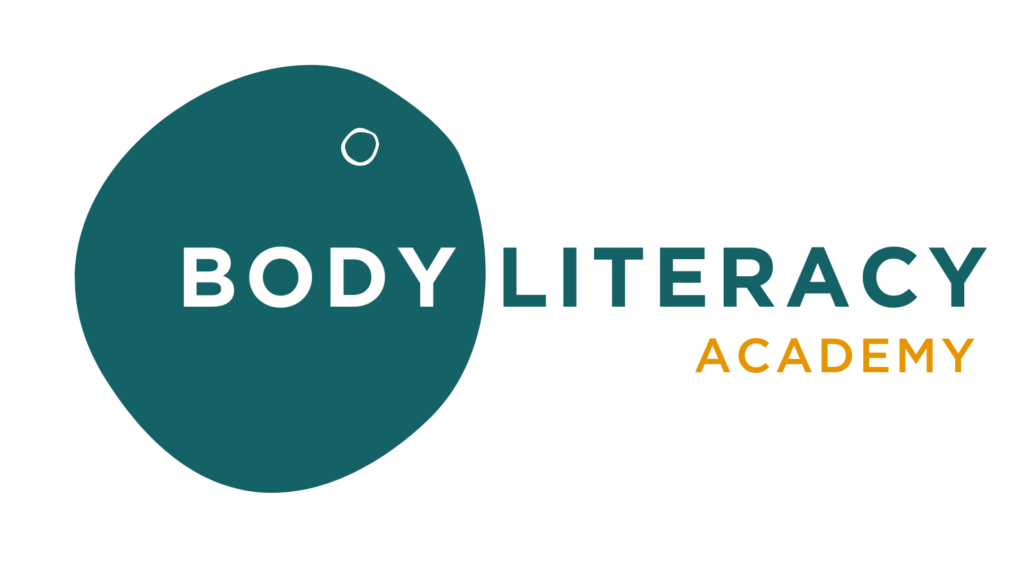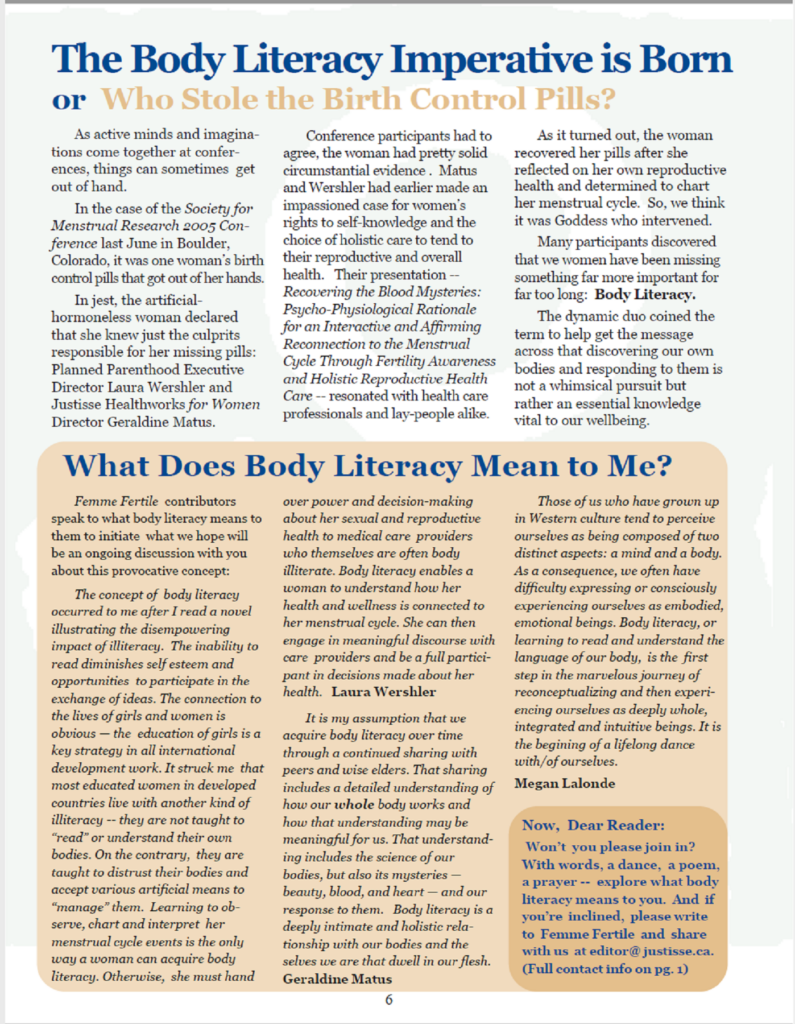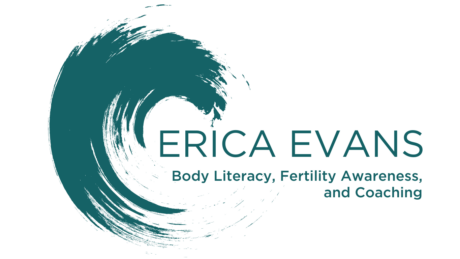
Founded by Erica Evans in 2019, the Body Literacy Academy empowers individuals to better understand and respond to their body’s unique messages across all stages of life—from menarche through menopause.
Body literacy, the academy’s guiding principle, is the ability to recognize, interpret, and trust the signs and signals our bodies communicate. In 2005, Laura Wershler introduced body literacy as “learning to observe, chart and interpret our menstrual cycle events.”

While body literacy is often linked to fertility awareness, it also goes beyond. Megan Lalonde broadened the scope defining it as “learning to read and understand the language of our body.” For some individuals this is about tuning into their neurotype and understanding how their individual brain wiring and sensory needs shape their experience. For others, it means listening to their nervous system to identify what they need to feel balanced or about embracing intuitive eating to nourish themselves effectively. For many, it’s about understanding how the body’s messages can guide health decisions and reproductive goals.
The Body Literacy Academy also embraces disability justice, honoring that each body communicates in unique ways. Programs are structured to be accessible and inclusive of diverse learning needs, respecting that disabled people and those with chronic conditions may experience and interpret body signals differently. For some, body literacy might involve adapting to sensory processing needs or understanding how neurodivergent experiences shape the way we relate to our bodies. This inclusivity echoes the broader vision for body literacy, which seeks to make these practices available and meaningful to everyone.
Along these values, in 2000 even before Laura Wershler, the Tathapi organization in India developed the concept of body literacy as a “medium to scientifically explain the processes of the body, its parts and functions” to people across ages and backgrounds. The Body Literacy Academy believes that body literacy is for every body, every gender, every age. All genders and sexual orientations are welcome to learn.
The academy offers a diverse selection of inclusive programs for all ages and stages led by Erica and carefully chosen co-instructors. Participants can engage in programming with Erica or co-instructors, and in collaborative, co-taught experiences with both, allowing for a rich, in-depth exploration of body literacy practices from multiple perspectives.
